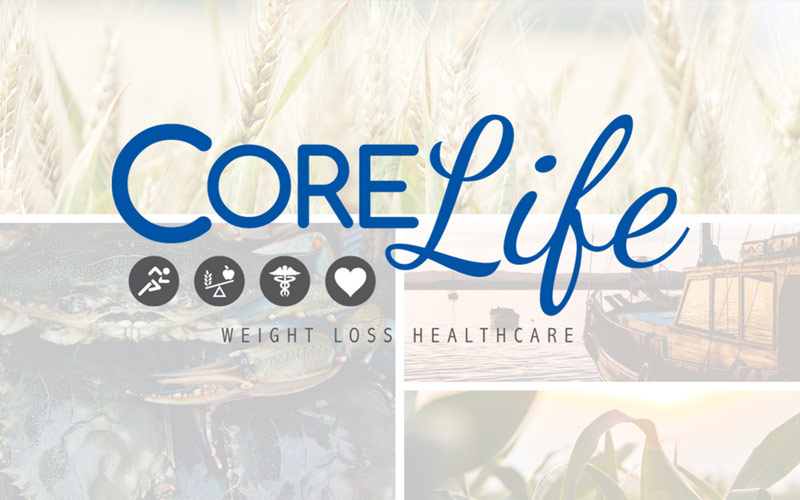Current dietary guidelines recommend consuming 3-5 servings of vegetables daily, but less than 1 in 10 Americans actually meet this goal. So what’s the big deal? What harm could a few less salads and some distance away from kale make? Well, aside from great taste, vegetables contain a variety of nutrients like vitamins, minerals, and fiber, some of which are:
- Vitamin A – for healthy eyes, glowing skin, and increased protection from infections
- Vitamin C – powerful antioxidant and essential nutrient; also helps heal wounds and keeps our gums and teeth happy and healthy
- Potassium – helps maintain healthy blood pressure
- Fiber – decreases the risk of coronary artery disease, keeps our bowel movement regular, and helps to prevent spikes in blood sugar levels
Even if the list of benefits stopped here, vegetables would have a strong argument supporting their importance in our daily diet. Veggies contain substances that have significant benefits to our health and wellness, including cancer prevention, reduced risk of cardiovascular disease, and reduced risk of hypertension. So how do we get more into our daily diet? Here are 3 easy ways to boost your veggie intake:
1. Smoothies With a variety of fruity additions and a bit of veggies too, a homemade smoothie can pack a real punch in terms of nutrition (6). A full serving (1 cup) or more of dark leafy greens can easily be disguised by the fruit in these delicious smoothie recipes. Try these combinations to get your taste buds begging for more.
- 1/2 a frozen banana, broken into chunks; 1/3 cup plain yogurt; 1 heaping Tbsp. of peanut butter or nut butter of your choice; ½ cup frozen strawberries; 2 huge handfuls (about 2-3 cups) of fresh spinach; water as necessary to thin. I call this the “PB & J” smoothie. Serve in a colored cup with a lid and straw and you’ll never even guess that 2 servings of veggies are inside!
*1 large 14-oz smoothie or 2 small 7-oz smoothies. For 14-oz serving: Calories: 250; Total Fat: 10g; Sat Fat: 2.4g; Carbohydrate: 31g; Dietary Fiber: 5g; Sodium: 193mg; Excellent source of Vitamin A, Vitamin B6, Vitamin C, Calcium, Folate, Magnesium, Manganese, and Vitamin B2
- 1/2 cup frozen sweet cherries; 1/3 cup plain yogurt; 1 handful (or about a cup) of fresh spinach; 2 leaves of fresh kale, stem removed; ¼ cup orange juice; water to thin; maple syrup to sweeten, if desired. Sweet and tart, this concoction will start the day off right, and you get an added Calcium kick with the kale!
1 large 14-oz smoothie or 2 small 7-oz smoothies. For 14-oz serving: Calories: 150; Total Fat: 1.6g; Sat Fat: <1g; Carbohydrates: 28g; Dietary Fiber: 2.8g; Sodium: 95mg; Excellent source of Vitamin A, Vitamin C, Calcium, Folate, and Manganese
2. Veggies…for Breakfast?!? Getting a serving of veggies in before noon is a great way to get ahead on your daily needs.
- Celery with a bit of nut butter is both filling and healthy. The protein and healthy oils from the nut butter and the fiber in the celery will keep you feeling full and satisfied. And, you’ll be one serving closer to your daily needs! Add some wheat germ on top for a tasty, sweet, and fun textured treat with a kick of vitamin E.
- For true breakfast fanatics, eggs can be the perfect compliment to those lonely veggies sitting in the fridge. An omelet loaded with mushrooms, peppers, and onion with just a sprinkle of cheese makes a hearty meal to get you off to a good start each day.
- For a baked breakfast bite, try veggie-based muffins like carrot pumpkin or the zucchini muffin recipe below. Indulge in a lovely baked good while chipping away at your daily vegetable needs.
- 1 egg, ¼ cup cane sugar, 2 Tbsp maple syrup, 1 ¼ cup finely shredded zucchini (squeeze and pat with paper towels to release excess moisture), 3 Tbsp coconut oil (melted), ½ tsp vanilla, heaping ½ tsp baking soda, 1 cup whole wheat pastry flour, heaping ¼ tsp cinnamon, and a dash of salt. Mix all the ingredients together until just combined and then distribute batter evenly into 6 paper-lined muffins cups. Bake for about 20 minutes at 325°F, until a toothpick inserted in the center comes out clean.
*Makes 6 Muffins, serving size = 1 muffin. Per Serving; Calories: 200; Fat: 8g; Sat Fat: 6g; Carbohydrate: 30g; Dietary Fiber: 3.3g; Sodium: 178mg
3. Mixing Magic. Add vegetables to other recipes you love.
- Spaghetti sauce is the perfect canvas to get creative with your veggies. Frozen chopped spinach blends in seamlessly to almost any recipes. Finely diced, sautéed carrots, celery, onions, and mushrooms add nutrition without compromising flavor. Blend the sauces in a blender or food processor before serving and you won’t know the difference.
- Add butternut squash to mac and cheese for a fun new twist, added touch of sweetness, and another servings of vegetables.
- Try piling a homemade or healthy frozen pizza high with fresh cut veggies. Too obvious for your taste buds? Make the pizza from scratch – either with a pre-made dough or a simple homemade dough recipe – and then add the veggies into your pizza sauce. Try pumpkin puree and fresh spinach; blend well to help the extra vegetables fit seamlessly into your pizza-night fun.
Be creative; see what other recipes could benefit from a little veggie pizzazz! With extra veggies in your diet, both your taste buds and your health will thank you. You’ll be up to five servings in no time and wonder how you ever survived without all that veggie power.
What’s your favorite veggie creation?
Aubrey MS RDN
